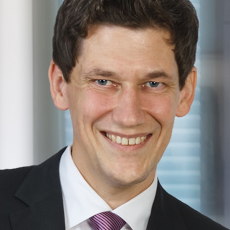Plenary speakers
Invited plenary talk: Thu, Sept. 4, 2024, 13:15-14:05
Frank Schiller (Munich RE, Germany)
Climate change and social aspects – What are our priorities?
There may be conflicts of interest at various points within the ESG (environmental, social, governance) sustainability goals but also between social goals and the economic viability of the insurance solutions.
It is important for companies to evaluate and weigh up which options exist and how these affect the various target dimensions (particularly relevant are ecological, social and economic). With the advice of actuaries, the management can make fact-based, well-informed and balanced decisions that also take the interests of the policy-holders into account appropriately.
In the context of designing solutions for society as a whole, actuaries can also advise political decision-makers and evaluate the various solution options on the basis of facts.
We provide some examples for the pension, life, health and general insurance sectors, which are currently facing specific challenges in Europe and have a material impact on the business model of insurers.
- How can environmental risk for property insurance be appropriately assessed in order to ensure affordable premiums and a stable collective but also incentivise the owners to increase the resilience against climate change on the one hand, but on the other hand not to make access to insurance cover unjustifiably more expensive or restrict it?
- How can individual personal risk including social aspects be appropriately assessed in life insurance in order to ensure a stable collective on the one hand, but on the other hand not to unjustifiably marginalise individuals and make access to insurance cover unjustifiably more expensive or restrict it?
- How can pension provision be modernised to reflect ESG targets and prevent poverty in old age despite volatile capital markets and demographic change?
Solutions will often depend on the social legislation of the individual country and can therefore only be meaningfully discussed on a market-specific basis. We will discuss what needs to be considered for each of the three examples and how business models of insurers might need to be adapted accordingly.
About
 Dr. Frank Schiller has been working at Munich Re as Chief Actuary in life and health reinsurance since 2015 and is responsible for the markets in Europe and Middle East. In this position he is in charge of pricing and business development. Before that he was Chief Risk Officer at Swiss Life from 2011 to 2015, first for the Swiss and later for the German market. From 2001 to 2011 he worked in various actuarial, risk management and product development positions at ERGO and Munich Re.
Dr. Frank Schiller has been working at Munich Re as Chief Actuary in life and health reinsurance since 2015 and is responsible for the markets in Europe and Middle East. In this position he is in charge of pricing and business development. Before that he was Chief Risk Officer at Swiss Life from 2011 to 2015, first for the Swiss and later for the German market. From 2001 to 2011 he worked in various actuarial, risk management and product development positions at ERGO and Munich Re.
As an active member in the German Actuarial Association (DAV) Dr. Frank Schiller is member of the executive board and Chair of the Enterprise Risk Management Committee. In the Actuarial Association of Europa (AAE) he is member of the board and was Vice Chair of the Risk Management Committee and Chair of the Sustainability and Climate related Risks Working Group before.
He was born 21 November 1972, studied Mathematics and finished his Ph.D. in 2002. Since 2004 Frank is a certified Actuary (DAV) and since 2013 Certified Enterprise Risk Actuary (CERA).








